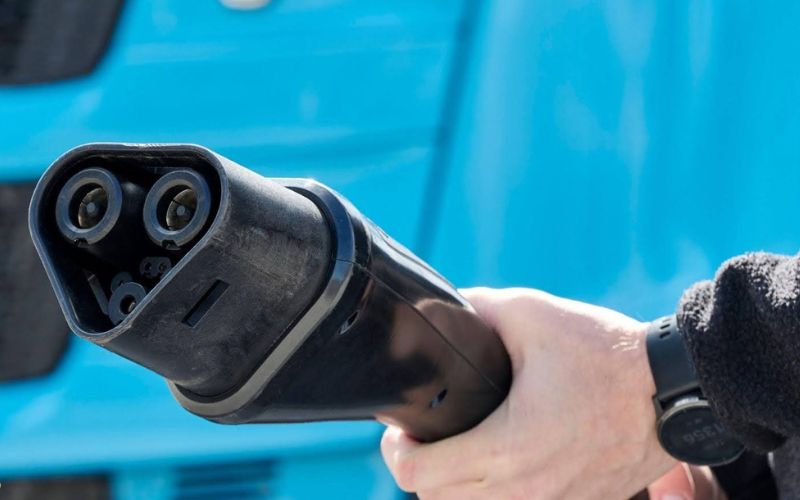Megawatt Charging Systems (MCS): Infrastructure Readiness for High-Power Electrification

As the electrification of commercial vehicles accelerates, the industry is confronting one of its most pressing infrastructure challenges: how to charge large battery-electric trucks and buses efficiently at scale. The Megawatt Charging System (MCS) is being developed precisely for this need.
MCS is a new charging standard capable of delivering up to 3.75 megawatts of power (3,000 A at 1,250 V DC), enabling charging times of 20–30 minutes for heavy-duty vehicles with battery capacities exceeding 500 kWh. The goal is to bring charging performance closer to that of diesel refueling, a critical requirement for long-haul electrification.
MCS is developed under the guidance of CharIN, in collaboration with OEMs, utility providers, and component suppliers. First commercial deployments are expected to begin between 2024 and 2025, with broader adoption following through 2030.
A system for modular Power Distribution and Multi-Vehicle Charging
An important architectural feature of modern MCS systems is their scalability and modularity. A typical MCS installation consists of:
- A centralized power cabinet or power unit (often installed remotely from the dispensers)
- One or more charging satellites connected via high-power cables
- A liquid-cooled charging connector, compatible with the MCS plug geometry
Depending on the configuration and power requirements, one cabinet can:
- Deliver full power to a single MCS outlet, for ultra-fast charging of one truck
- Distribute power dynamically across multiple satellites, enabling concurrent charging of several heavy-duty vehicles or a mix of MCS and CCS-equipped vehicles (e.g. trucks and passenger cars)
This dynamic load balancing is essential for high-traffic depots, rest areas, ports, and logistics centers. It allows operators to optimize infrastructure use while minimizing energy costs and peak load demands.
MCS also integrates well with site-level energy management systems, including battery energy storage, solar generation, and smart grid communication - making it an enabler of energy-efficient fleet operations.
The Market Outlook: Timeline and Penetration
Several major truck OEMs - including Daimler Truck, Volvo Group, and Traton - have committed to MCS compatibility in their future electric platforms. Pilot projects are already underway across Europe and North America, with infrastructure partners such as ABB, Siemens, Alpitronic, Kempower, and Heliox investing in MCS-ready solutions.
By 2030, industry forecasts suggest that over 30% of new heavy-duty trucks in Europe and the US could be electric or fuel-cell powered. MCS infrastructure will be key to supporting this shift, particularly for:
- Regional and long-haul logistics
- Intermodal freight hubs
- Highway charging corridors
- Zero-emission zones and urban distribution networks
Mechanical Challenges at Megawatt Scale
Delivering power at megawatt levels introduces significant mechanical and thermal challenges. The size, weight, and heat generated by these systems require:
- Robust cabinet structures, often with active or passive cooling
- Precision manufacturing, to ensure internal components remain secure and accessible
- Durable surface finishes, resistant to weather, UV, corrosion, and physical wear
- Custom geometries, to fit space-constrained environments or modular deployments
The mechanical housing must also integrate cable management, user interface components, safety interlocks, and serviceability features, all while complying with international standards.
FAIST Industrial business unit’s Role in Supporting MCS Deployment
At FAIST Industrial, we specialize in the design for manufacturability and production of high-quality metal enclosures and mechanical assemblies for power electronics and EV infrastructure applications. With decades of experience in high-volume manufacturing, we are uniquely positioned to support MCS system integrators with:
- Customizable mechanical platforms for MCS cabinets and satellites
- Precision sheet metal fabrication, welding, and surface treatment
- Design validation for harsh environments
- Assembly-ready kits for rapid field installation
The business unit production facilities in Italy and Romania provide flexible, scalable, and cost-effective solutions for customers across Europe and beyond. We collaborate closely with engineering teams to optimize product designs for mechanical reliability, thermal performance, and serviceability.
Readiness for the Megawatt Future
MCS is not just a new charging plug - it’s a foundational technology that will support the electrification of long-range transport and enable more sustainable logistics infrastructure. As the EV industry moves from pilot to scale, the need for robust, production-ready mechanical solutions is critical.
FAIST Industrial stands ready to support this transformation, with proven industrial capabilities and a clear understanding of the demands of high-power, mission-critical infrastructure.



